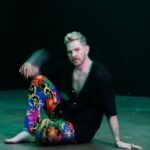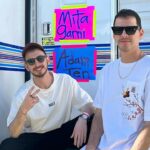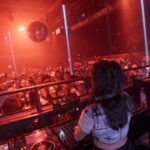Both The Boys and My Hero Academia feature worlds populated by superheroes, where anyone gifted with powers can step up and be recognized as a hero. The superheroes of The Boys are, almost without fail, corrupt, monstrous beings who don't think twice about murder. On the other hand, the heroes of My Hero Academia believe strongly in their heroism and will always do what they consider to be the right thing, no matter the cost.
Part of this division can be explained by the target audience -- MHA is oriented towards children and teens, while The Boys is unquestionably adult. But there are other factors at play here, both in the real world and the world of the TV shows.
Unreal Superheroes With Real-World Origins
The Boys originated as a comic by Garth Ennis and Darick Robertson, first published in 2006. The comic was possibly even more cynical than the show it spawned, and it is very much reflective of the post 9/11 Bush era. People felt angry and threatened, and for a large portion of people that anger was turned toward the government. Ennis and Robertson chose to make a comic representative of this loss of trust in traditional power structures. To them, superheroes represented that established order.
The Boys TV series also serves as a critique of contemporary power, specifically the out of control corporatism and racism that we see today. As a result, the superheroes depicted in The Boys are corporate lackeys and white supremacists. They represent the powers that be, powers that are trying to crush and defeat the common man, acting out the worst impulses of greed and racism that can occur in American culture.
Now, Japan is a very different place to the United States, and this is reflected in the world of My Hero Academia. Generally speaking, Japanese culture is less individualistic than that of the United States. In Japan, the focus is much more on what an individual can do for the larger group -- whether that is your family, your company, or your country -- than what you can do for yourself, and duty is extremely important.
This helps explain the world of My Hero Academia a bit more. Here, people with Quirks register with the government and do their best to live up to what they see as their duty. It's not so much an independent hero carving out their own form of justice as it is more about becoming part of a larger movement and doing your part to make the world a better place. This belief in organization is harshly different to the world of The Boys, where structure and loyalty to a government or corporation lead to inherent corruption.
In The Boys, everyone more or less behaves selfishly. The superheroes only care about personal gain and appearance, and even the (somewhat) more heroic Boys team mostly act out of a sense of revenge. In MHA, heroes act because they truly believe in helping their community and doing the right thing. Even more self-involved heroes like Mount Lady see the power, fame and fortune as bonuses: their main goal is to protect the public. Now, there is no doubt that the world of MHA is a very optimistic and idealized one, but Japan is a place where a duty to your community is very important. This cultural difference is very apparent in MHA.
Superheroes Leading by Example
Who is the most famous, recognizable superhero in the world? Despite one's personal opinion on whether or not he is an interesting or compelling character, most people would say Superman. Both The Boys and MHA heavily feature a Superman-inspired character, and like Superman, both Homelander and All Might serve as a template from which the rest of their world is based.
In MHA the strongest, most powerful hero in the world is All Might. As we find out in the early episodes of MHA, All Might has sacrificed a tremendous amount to be a pro hero -- even his health and ability to use his powers. In spite of this, All Might has saved more innocent people than any other hero and is always quick to laugh in the face of evil. No matter the odds he pushes forward, as he believes he must serve as an inspiration to the current generation of heroes and the world at large.
All Might's influence is best shown through series protagonist Deku. Deku regularly throws himself into danger for which he is not equipped, even if it might lead to his own injury or death, so long as it means protecting others. He does this because of his own innate heroism, but also because of the lessons All Might has taught him. Being a pro hero means putting your life on the line, and this is something Deku and the rest of the heroes in MHA believe. Maybe they wouldn't if they hadn't had an example like All Might.
In the world of The Boys, we have Homelander. Homelander is a narcissist, believing everyone else to be inferior. Both All Might and Homelander are fixated on their image -- but for very different reasons. All Might knows that his very presence acts as a deterrence on evil, and so, also knows he must project strength and goodness. Homelander is obsessed with his image because he's obsessed with himself. He wants to be worshiped and knows the public would turn on him if they knew the kind of damage and death he actually causes.
As well as his own narcissism, it's important to remember that Homelander is essentially a product. He works for and was created by Vought International. Marketing is all about appearances, not necessarily the actual content, and Homelander is a perfect example of that. It doesn't matter to Vought if their superheroes are dangerous and horrible. They just care about power and profit. Homelander and his employers are very different examples of this than All Might.
Superhero Societies' Differences Are Ultimately Cultural
The superhero society of MHA is a successful one, full of heroic individuals uniting to fight evil and protect the innocent. The Boys' version is unsuccessful, full of superficial heroics that do more harm than good. They say power reveals, and in both these properties this is true -- it reveals both the cultures they come from, the ideas of the creators and the nature of the central heroes themselves.
Of course, the success of both series' means there is clearly room for both of these interpretations of superhero societies. Sometimes we need to see something that reflects the dark truths of our own world, and sometimes we need to see a more hopeful reality we can aspire to. Either way, it's usually more fun when the characters in these stories -- good or bad -- wear capes.
About The Author

